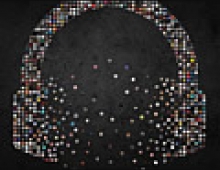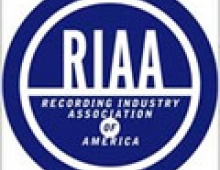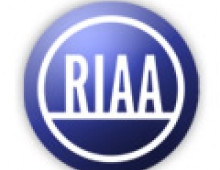
RIAA to sue 9 A&M students for downloading illegally
Cantrell, the associate provost for information technology at A&M, said the University received two courtesy notifications from the RIAA: one on Feb. 2, stating six students will be sued, and one on Feb. 28, stating that three more students will be sued.
"The RIAA files John Doe lawsuits in the local federal district court in Houston, and then the judge has to issue a subpoena and then that'll come to the University," Cantrell said.
The subpoena contains Internet protocol (IP) addresses, which allow University officials to identify a particular computer. Cantrell said the A&M System keeps logs that determine which computer goes with which IP address. It can then track the location of the computer - a dorm room for instance - and determine the user.
A&M is signatory to the Digital Millennium Copyright Act (DMCA), Cantrell said. If the University receives a subpoena, they are required by law to cooperate and release the names of the students tracked through IP addresses.
Although no formal subpoena has been received, Cantrell said one is coming.
The University received nine subpoenas last April, but the documents were for events that took place after University logs had been erased. Logs are now kept for about a year, he said.
Cantrell said people receiving lawsuits have been file sharing. Sharing songs enables officials from the RIAA to download the song, determine if the material is copyrighted and learn the IP address of the song provider. The IP addresses are specific to A&M, and an Internet Web site provides their location. Cantrell said the reason for the lawsuit is to compel the University to turn over the names of the students.
"When we get the subpoenas, the general council will examine them and alert the students," Cantrell said.
Laura Craig, freshman biology major, said the actions of the RIAA are extreme, and nine students should not be punished for something a majority of students at A&M do.
"I don't agree with illegally downloading music," Craig said. "But, I'd rather get music for free than pay for it."
Junior management major Brenna Cmerek said she used to download songs until she saw a Pepsi commercial during the Super Bowl advertising the chance to win free iTunes.
"One out of three Pepsi bottles have a free song on the cap. I have an iPod and drink a lot of diet Pepsi, so this worked for me," Cmerek said. "I understand the industries need to make money, but I heard in one of my classes that the majority of bands don't get their money from CD sales. They make it from concerts."
The RIAA was unavailable for comment, but according to its Web site, its goals are, "to work with our industry and others to enable technologies that open up new opportunities, while at the same time protecting the rights of artists and copyright owners."
The subpoena contains Internet protocol (IP) addresses, which allow University officials to identify a particular computer. Cantrell said the A&M System keeps logs that determine which computer goes with which IP address. It can then track the location of the computer - a dorm room for instance - and determine the user.
A&M is signatory to the Digital Millennium Copyright Act (DMCA), Cantrell said. If the University receives a subpoena, they are required by law to cooperate and release the names of the students tracked through IP addresses.
Although no formal subpoena has been received, Cantrell said one is coming.
The University received nine subpoenas last April, but the documents were for events that took place after University logs had been erased. Logs are now kept for about a year, he said.
Cantrell said people receiving lawsuits have been file sharing. Sharing songs enables officials from the RIAA to download the song, determine if the material is copyrighted and learn the IP address of the song provider. The IP addresses are specific to A&M, and an Internet Web site provides their location. Cantrell said the reason for the lawsuit is to compel the University to turn over the names of the students.
"When we get the subpoenas, the general council will examine them and alert the students," Cantrell said.
Laura Craig, freshman biology major, said the actions of the RIAA are extreme, and nine students should not be punished for something a majority of students at A&M do.
"I don't agree with illegally downloading music," Craig said. "But, I'd rather get music for free than pay for it."
Junior management major Brenna Cmerek said she used to download songs until she saw a Pepsi commercial during the Super Bowl advertising the chance to win free iTunes.
"One out of three Pepsi bottles have a free song on the cap. I have an iPod and drink a lot of diet Pepsi, so this worked for me," Cmerek said. "I understand the industries need to make money, but I heard in one of my classes that the majority of bands don't get their money from CD sales. They make it from concerts."
The RIAA was unavailable for comment, but according to its Web site, its goals are, "to work with our industry and others to enable technologies that open up new opportunities, while at the same time protecting the rights of artists and copyright owners."




















